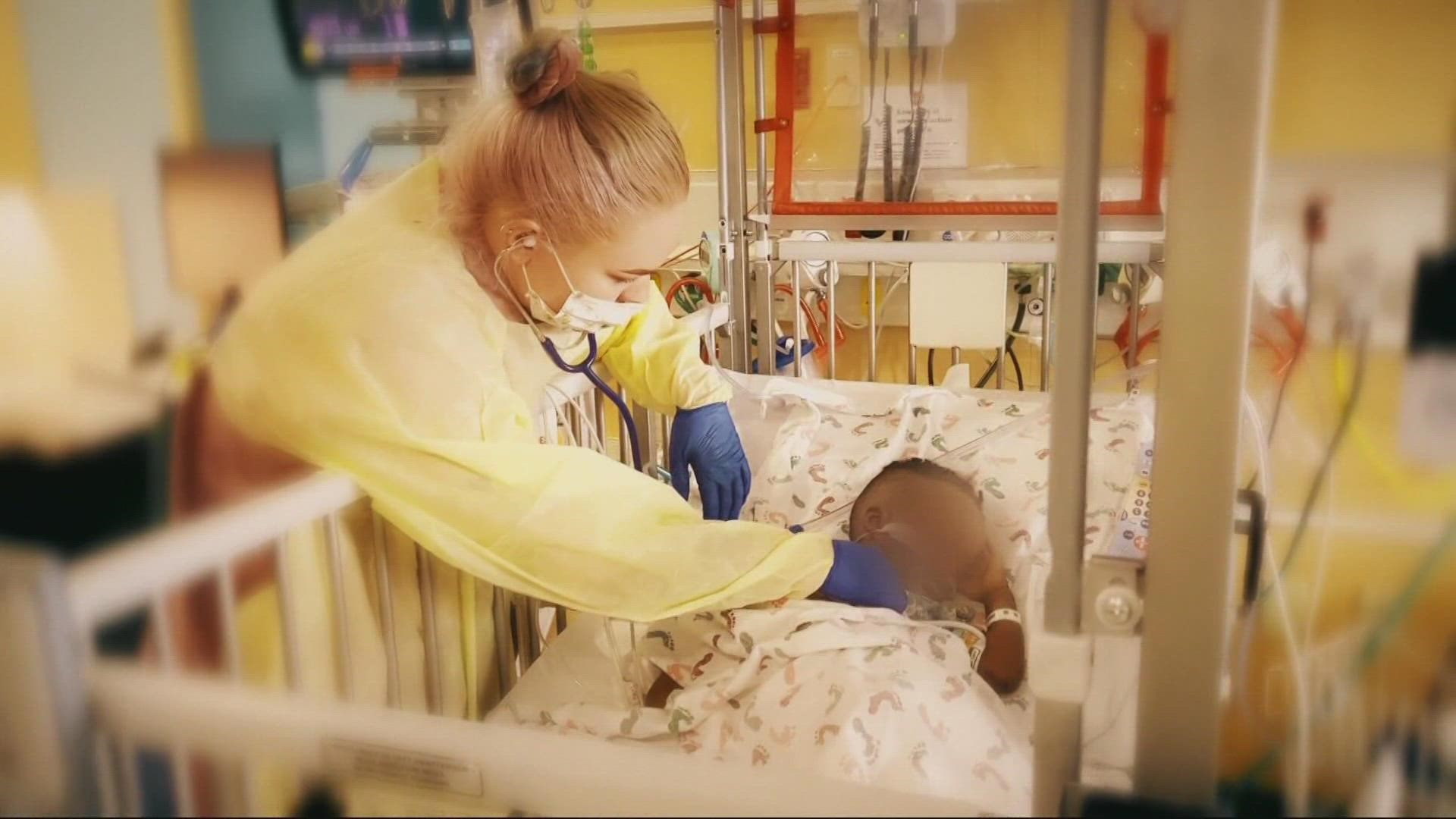PORTLAND, Ore. — The health officer for Multnomah County is asking everyone to start wearing face masks indoors when they're around other people, at least through the end of the year, to help keep a rise in respiratory infections in check.
Multnomah County Health Officer Dr. Jennifer Vines made the request during a briefing with county health officials and doctors Thursday afternoon. Vines stressed that it's not a mandate and she said she doesn't anticipate a mask mandate, public health closures, enforced social distance or requirements that organizations change their masking policy.
Vines said she's asking people to "put a mask back on when you're indoors around other people, and that goes for kids in K-12 settings and childcare," to help give overwhelmed pediatric care units and emergency rooms a chance to catch up as they deal with the triple threat of RSV, rapidly rising flu cases and a spike in COVID hospitalizations.
"We've used the word unprecedented a lot in the last three years, so it's hard to know how to ratchet that up," Vines said. "We are at what our people are calling a historical moment in terms of the pressures on our local health care system."
All emergency departments in the county are essentially full, Vines said, with a "high demand for hospital and emergency level care that is at risk of going beyond the [space and staffing] that we have locally."
Vines said the major driver of the current crisis is RSV. She said it remains a "major concern" among children, especially those under age 5, though she said they're also seeing cases among adults, including hospitalizations. Vines said health officials hope they're nearing the peak of RSV season, but there's additional concern about the level of flu activity, with hospitalizations increasing rapidly, and a "surprising uptick" in COVID-19 hospitalizations.
Other doctors spoke at the briefing, including Dr. Wendy Hasson, medical director of the Pediatric Intensive Care Unit at Randall Children's Hospital. She said Randall is seeing "historic numbers of not only admissions but also emergency room visits," with the emergency room seeing nearly double the number of patients they'd normally see during a regular winter.
Hasson echoed Vines, saying while RSV is a big reason for the current crisis, it's "really the confluence of multiple respiratory viruses happening at the same time." She said they're seeing a lot of kids getting sick from viruses like rhinovirus, enterovirus and parainfluenza. She said cases of the flu are "increasing exponentially."
"RSV, rhinovirus, enterovirus, influenza — all of these viruses are very familiar disease processes to the pediatric care community caring for these children," Hasson said. "So this is not a crisis for the disease, this is a crisis for resources, meaning that we simply just don't have enough nurses, respiratory therapists and support staff."
In addition to masking indoors, Vines said everyone six months and older should be vaccinated for influenza. She said people should also get the COVID booster, which she said "continues to be a good match for the variant of Omicron that is circulating now." She said it's never too late to start the COVID vaccination series.
Vines said people who are sick should stay away from others and people in a high-risk category should avoid crowds and stay away from people who are sick. She also said hand washing and using hand sanitizer is more important than ever with RSV, which tends to spread on surfaces easier than COVID.
Another recommendation is that people only go to the emergency room for true emergencies. Doctors say many people are showing up just to get tested, which is bogging down the system.
VIDEO: Two Portland children's hospitals go on crisis standards of care (Nov. 22, 2022)

